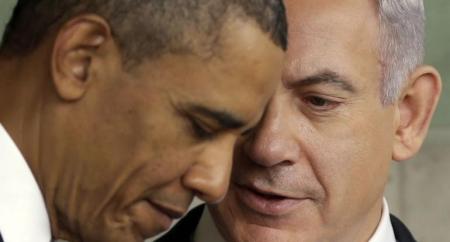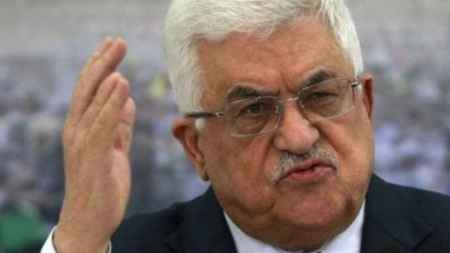Jared Kushner, Mohammed bin Salman, and Benjamin Netanyahu Are Up to Something, Foreign Policy, Dov Zakheim, November 7, 2017

JERUSALEM, ISRAEL – JUNE 21: (ISRAEL OUT) In this handout photo provided by the Israel Government Press Office (GPO), Israel’s Prime Minister Benjamin Netanyahu meets with Jared Kushner on June 21, 2017 in Jerusalem, Israel. (Photo by Amos Ben Gershom/GPO via Getty Images)
Mohammed bin Salman may or may not have recently visited Tel Aviv, where Israel’s Defense Ministry is located. But even if he never set foot in the HaKirya complex, there is little doubt that he has authorized ever closer relations with the Israelis, who view the Iranian threat exactly as he does. And the crown prince is not the only one Jared Kushner has been speaking to: Trump has given his son-in-law overall leadership on the peace process between Israel and the Arabs, and he is reportedly a welcome guest in Israeli Prime Minister Benjamin Netanyahu’s office.
Given Kushner’s role, did Crown Prince Mohammed bin Salman signal his plans when Kushner last met with him — and did Kushner then inform his father-in-law? And if so, how far will Washington, or more precisely, the White House, go to back up the Saudis if their confrontation with Iran gets hot? Or will Israel serve as Trump’s proxy? With this president, this crown prince, and the current prime minister of Israel, anything is possible.
****************************
There seems to be a general consensus in Washington that Saudi Crown Prince Mohammed bin Salman’s ongoing purge of princes and businessmen — including the wealthiest of them all, the business mogul and Prince Al-Waleed bin Talal — is motivated by his determination to consolidate his power, well before his father, King Salman, passes from the scene. He is in this regard a latter-day Adonijah, who had himself crowned king while his father King David was alive. And, like Adonijah, Mohammed bin Salman has made some very powerful enemies in the process. Unlike that Biblical figure, however, he has his father’s support and has taken care to arrest anyone who might threaten his drive to preeminence.
Jared Kushner, U.S. President Donald Trump’s son-in-law and senior advisor, was in Riyadh again only recently. It was his third trip to Saudi Arabia since Trump took office. He again met with Crown Prince Mohammed bin Salman, with whom he appears to have established a close personal relationship. It should therefore come as no surprise that Trump, who shares the young crown prince’s antipathy toward Iran, has commented favorably on the recent developments in Riyadh.
It is said of Donald Trump that he has undermined America’s credibility with its allies. That may be the case in Europe, and perhaps in parts of Asia, though not in Japan or India. But it is certainly not the case in the Middle East. Tensions with Turkey and Egypt emanate primarily from the U.S. Congress, not from the other end of Pennsylvania Avenue. Relations with Israel are better than they have been since the day former President Barack Obama took office. The same can be said of U.S. relations with both Saudi Arabia and the United Arab Emirates or, for that matter, Bahrain and Morocco. The force that unites them all is Iran, whose support for instability throughout the region received a financial fillip from the Joint Comprehensive Plan of Action — that is, the Iran nuclear deal.
Crown Prince Mohammed bin Salman may or may not be a true reformer. His record on that score is not unequivocal. But he is determined to halt the expansion of Iranian influence, which now really does manifest itself as the Shiite crescent about which Jordan’s King Abdullah II forewarned over a decade ago. The crown prince recognizes that his country’s worst nightmare is slowly materializing: Iran is supplying the Houthi rebels to its south and dominates neighboring Iraq to its north.
It foments instability in Bahrain and could well do the same in Saudi Arabia’s Shiite-majority Eastern Province. And if that were not enough, Iran’s influence is entrenched in Damascus and Beirut. It is particularly for that reason the Saudis forced their ally Saad Hariri, the Lebanese prime minister, to resign his office while on a visit to the Kingdom.
Mohammed bin Salman may or may not have recently visited Tel Aviv, where Israel’s Defense Ministry is located. But even if he never set foot in the HaKirya complex, there is little doubt that he has authorized ever closer relations with the Israelis, who view the Iranian threat exactly as he does. And the crown prince is not the only one Jared Kushner has been speaking to: Trump has given his son-in-law overall leadership on the peace process between Israel and the Arabs, and he is reportedly a welcome guest in Israeli Prime Minister Benjamin Netanyahu’s office.
Given Kushner’s role, did Crown Prince Mohammed bin Salman signal his plans when Kushner last met with him — and did Kushner then inform his father-in-law? And if so, how far will Washington, or more precisely, the White House, go to back up the Saudis if their confrontation with Iran gets hot? Or will Israel serve as Trump’s proxy? With this president, this crown prince, and the current prime minister of Israel, anything is possible.










Recent Comments